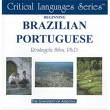Brazilian Portuguese is a collective name for the varieties of Portuguese written and spoken by virtually all the 180 million inhabitants of Brazil and by a couple million Brazilian immigrants and temporary workers in other countries, mainly in Canada, United States, Portugal, Paraguay and Japan. The term includes the formal written (FW) standard, the version of written Portuguese that is taught at schools throughout Brazil and used in almost all writing; the formal spoken (FS) standard, basically a spoken form of the above, used in formal contexts or when reading from a written text; the informal spoken (IS) language, used in all other occasions. The Brazilian formal written standard, which is defined by law and by international agreements with other Portuguese-speaking countries, is very similar to the European one; but there are nevertheless many differences in spelling, lexicon, and grammar. Brazilian and European writers also have markedly different preferences when choosing between supposedly equivalent words or constructs. The formal spoken standard, being tied to the written one, has those same minor differences in lexicon and grammar, but also substantial phonological differences, with noticeable regional variation.
The informal spoken language deviates substantially from the formal standard, even in the rules for agreement; and shows considerable regional variation. Nevertheless, the cultural prestige and strong government support accorded to the written standard has maintained the unity of the language over the whole country, and ensured that all regional varieties remain fully intelligible. Starting in the 1960s, the nationwide dominance of TV networks based in the southeast (Rio de Janeiro and São Paulo) has made the dialect of that region into an unofficial standard for the spoken language as well.
Translation
Translation is an activity comprising the interpretation of the meaning of a text in one language — the source text — and the production, in another language, of a new, equivalent text — the target text, or translation. Traditionally, translation has been a human activity, although attempts have been made to automate and computerize the translation of natural-language texts — machine translation — or to use computers as an aid to translation — computer-assisted translation. The goal of translation is generally to establish a relation of equivalence of intent between the source and target texts (that is to say, to ensure that both texts communicate the same message), while taking into account a number of constraints. These constraints include context, the rules of grammar of both languages, their writing conventions, their idioms, and the like.
Translation process
The translation process, whether it be for translation or interpreting, can be described simply as:
Decoding the meaning of the source text, and Re-encoding this meaning in the target language. To decode the meaning of a text the translator must first identify its component “translation units”, that is to say the segments of the text to be treated as a cognitive unit. A translation unit may be a word, a phrase or even one or more sentences. Behind this seemingly simple procedure lies a complex cognitive operation. To decode the complete meaning of the source text, the translator must consciously and methodically interpret and analyze all its features. This process requires thorough knowledge of the grammar, semantics, syntax, idioms and the like of the source language, as well as the culture of its speakers.
The translator needs the same in-depth knowledge to re-encode the meaning in the target language. In fact, often translators’ knowledge of the target language is more important, and needs to be deeper, than their knowledge of the source language. For this reason, most translators translate into a language of which they are native speakers. In addition, knowledge of the subject matter being discussed is essential. In recent years studies in cognitive linguistics have been able to provide valuable insights into the cognitive process of translation.
Specialized types of translation
Any type of written text can be a candidate for translation, however, the translation industry is often categorized by a number of areas of specialization. Each specialization has its own challenges and difficulties. An incomplete list of these specialized types of translation includes:
- Administrative translation: The translation of administrative texts.
- Commercial translation: The translation of commercial (business) texts. This category may include marketing and promotional materials directed to consumers.
- Localization: That is the adaptation of the translation to the target language and culture, is gaining prevalence in this area of specialization.
- Legal translation: The translation of legal documents (laws, contracts, treaties, etc.). A skilled legal translator is normally as adept at the law (often with in-depth legal training) as with translation, since inaccuracies in legal translations can have serious results. (One example of problematic translation is the Treaty of Waitangi, where the English and Maori versions differ in certain important areas.). Sometimes, to prevent such problems, one language will be declared authoritative, with the translations not being considered legally binding, although in many cases this is not possible, as one party does not want to be seen as subservient to the other.
- Scientific translation: The translation of scientific texts.
- Technical translation: The translation of technical texts (manuals, instructions, etc.). More specifically, texts that contain a high amount of terminology, that is, words or expressions that are used (almost) only within a specific field, or that describe that field in a great deal of detail.
Translation Links
TRANSLATION LINKS
- Portuguese Translation for Portuguese Translation
- Spanish Translation for Spanish Translation
Legal Directories
LISTINGS FOR LAWYERS AND LAW FIRMS
- JurisOffice for one of the best value legal directories today in the market.



